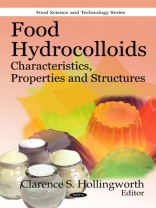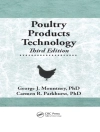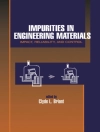A hydrocolloid is defined as a colloid system wherein the colloid particles are dispersed in water. A hydrocolloid has colloid particles spread throughout water and depending on the quantity of water available that can take place in different states, e.g., gel or sol (liquid). Hydrocolloids can be either irreversible (single-state) or reversible. For example, agar, a reversible hydrocolloid of seaweed extract, can exist in a gel and sol state, and alternate between states with the addition or elimination of heat. Many hydrocolloids are derived from natural sources. Agar-agar and carrageenan are extracted from seaweed; gelatin is produced by hydrolysis of proteins of bovine and fish origins, and pectin is extracted from citrus peel and apple pomace. Gelatin desserts like jelly or Jell-O are made from gelatin powder, another effective hydrocolloid. Hydrocolloids are employed in food mainly to influence texture or viscosity. This new and important book gathers the latest research from around the globe in the study of food hydrocolloids and highlights such topics as: collagen and gelatin extracted from skate skin, sucrose pectin interaction, utiliztion of glucomannans for health and others.
Clarence S Hollingworth
Food Hydrocolloids [PDF ebook]
Characteristics, Properties and Structures
Food Hydrocolloids [PDF ebook]
Characteristics, Properties and Structures
قم بشراء هذا الكتاب الإلكتروني واحصل على كتاب آخر مجانًا!
شكل PDF ● صفحات 323 ● ISBN 9781617619151 ● محرر Clarence S Hollingworth ● الناشر Nova Science Publishers ● نشرت 2016 ● للتحميل 3 مرات ● دقة EUR ● هوية شخصية 7220324 ● حماية النسخ Adobe DRM
يتطلب قارئ الكتاب الاليكتروني قادرة DRM












